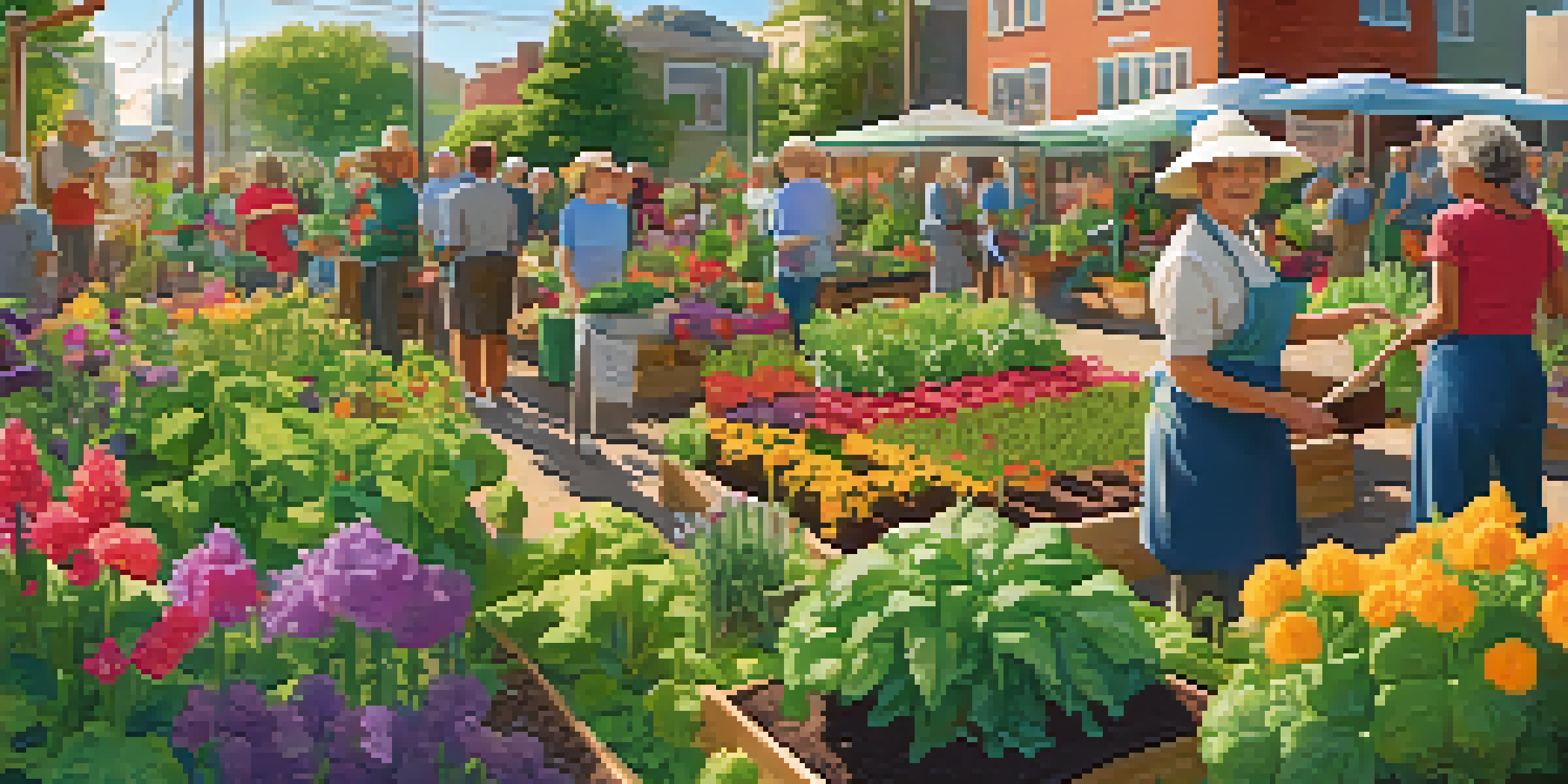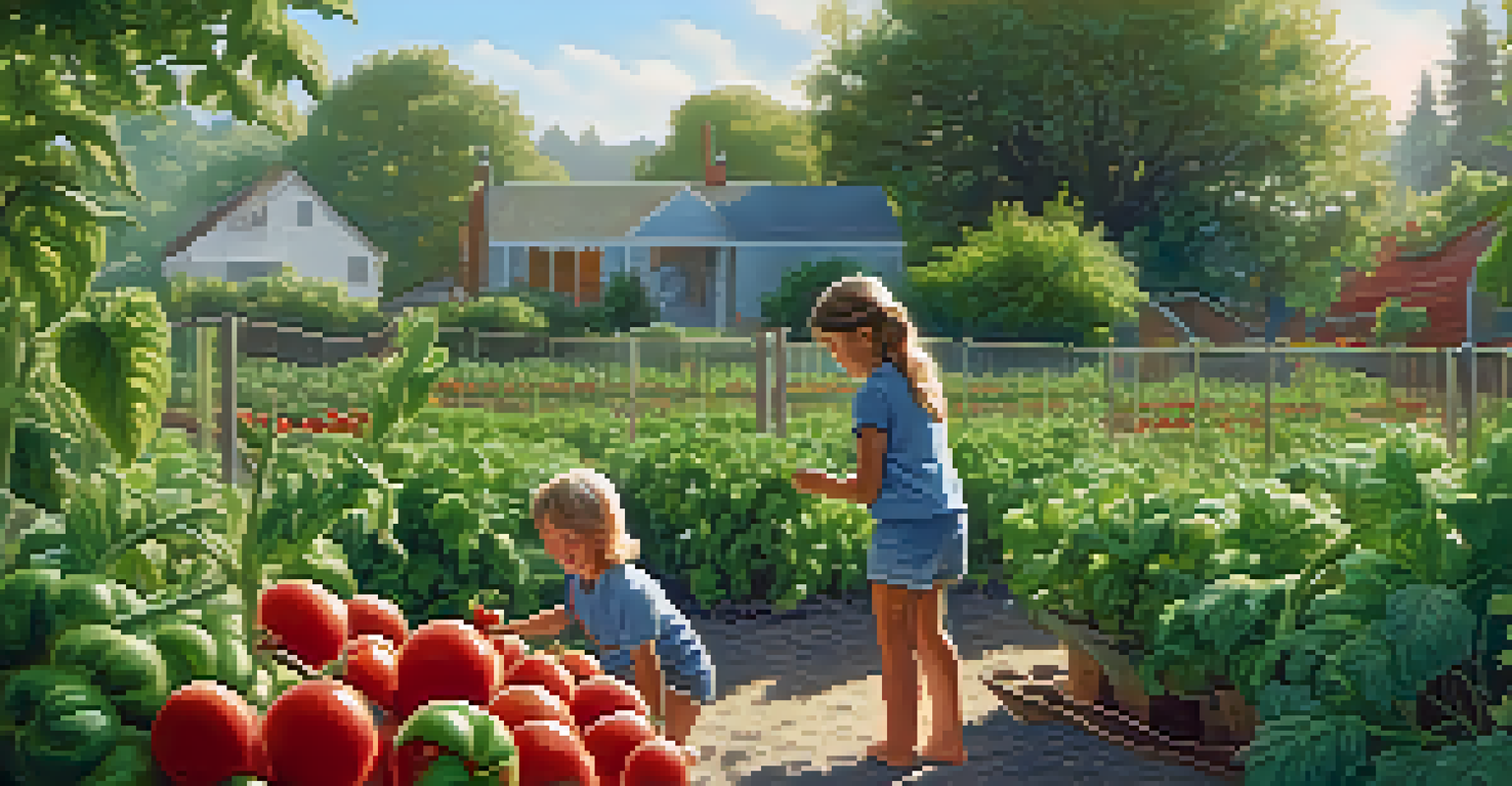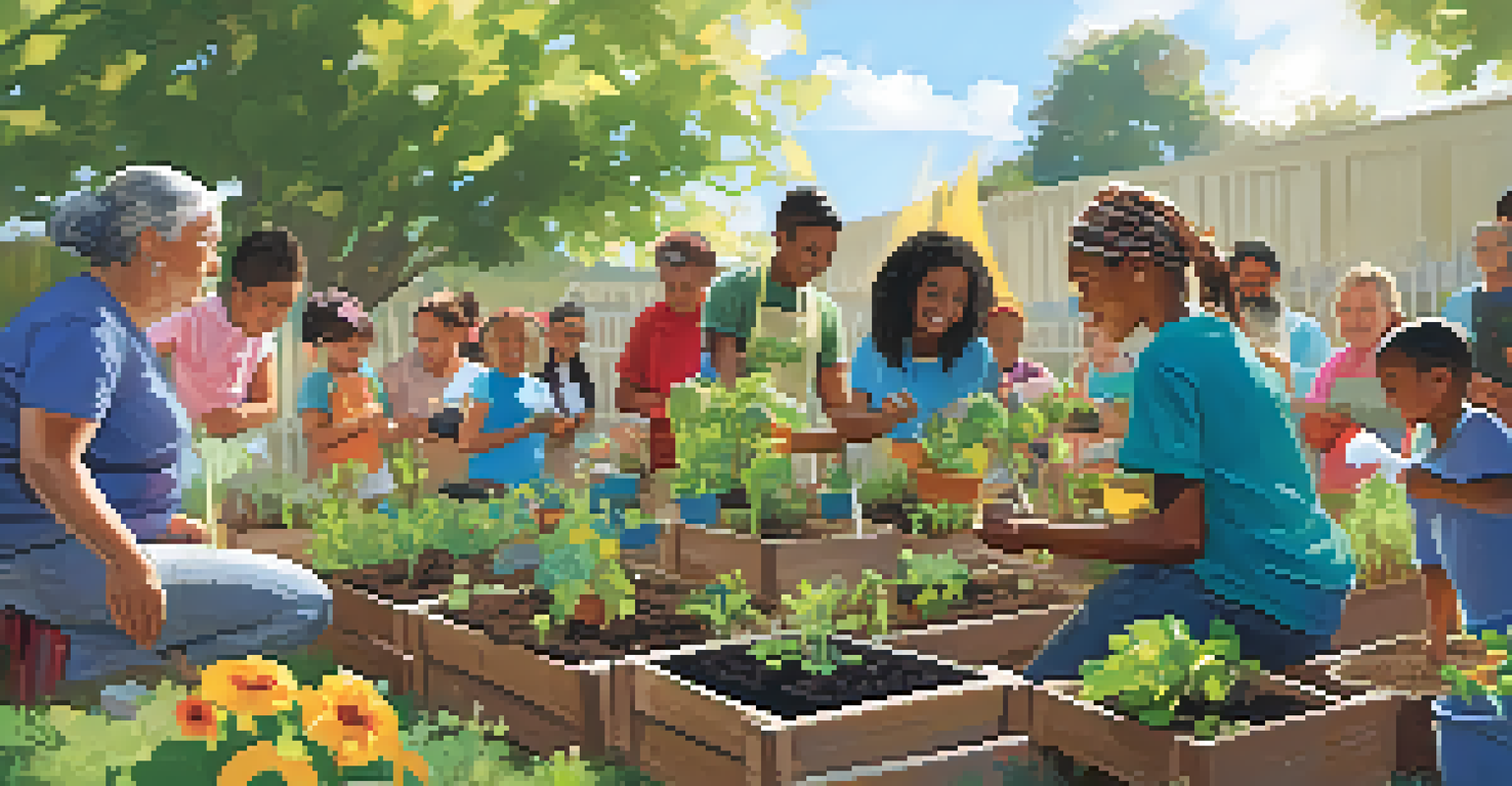The Benefits of Community Gardens in Carlsbad for Residents

Fostering Community Connections Through Gardening
Community gardens serve as a hub for residents to connect and collaborate. They create a space where people can come together, share gardening tips, and form friendships. This sense of belonging can significantly enhance the social fabric of Carlsbad, making neighborhoods feel more like home.
To plant a garden is to believe in tomorrow.
Imagine meeting your neighbors while tending to a vibrant vegetable patch. These interactions often lead to stronger ties, fostering an environment where people support one another. As friendships bloom alongside the flowers, community gardens become a catalyst for social change.
Moreover, these gardens can host events, workshops, and potlucks, further enriching community ties. Everyone from children to seniors can participate, making gardening an inclusive activity. This engagement can lead to lifelong friendships and a greater sense of community pride.
Promoting Sustainable Practices in Urban Settings
Community gardens are not just about growing food; they're also about promoting sustainability. These green spaces encourage residents to adopt eco-friendly practices, such as composting and organic gardening. By doing so, they reduce waste and contribute to a healthier environment.

Engaging in sustainable gardening can also spark awareness about environmental issues. For instance, when residents learn to grow their own food, they become more conscious of where their food comes from and its impact on the planet. This knowledge can lead to more sustainable choices in their daily lives.
Building Community Through Gardening
Community gardens create spaces for residents to connect, collaborate, and forge lasting friendships.
Furthermore, these gardens help to support local biodiversity by providing habitats for pollinators and other wildlife. By transforming vacant lots into green spaces, community gardens play a crucial role in counteracting urban sprawl and its associated environmental challenges.
Enhancing Mental Health and Well-being
Gardening is known for its therapeutic benefits, and community gardens in Carlsbad are no exception. Spending time in nature and engaging in physical activity can significantly boost mental health. Residents often report feeling more relaxed and happier after working in the garden.
Gardening adds years to your life and life to your years.
Additionally, community gardens provide a sense of purpose. Cultivating plants and watching them flourish can be incredibly rewarding, fostering a sense of accomplishment. This connection to nature can also help combat feelings of anxiety and depression, making gardening a natural antidote.
Moreover, gardens can serve as peaceful retreats from the hustle and bustle of daily life. They offer a serene environment where residents can escape, reflect, and recharge, ultimately leading to a more balanced and fulfilled lifestyle.
Access to Fresh, Healthy Produce
One of the most tangible benefits of community gardens is access to fresh produce. Residents can grow their own fruits and vegetables, which are often more nutritious than store-bought options. This access encourages healthier eating habits and can lead to better overall health.
Imagine stepping into your backyard and harvesting ripe tomatoes or crisp lettuce. This not only provides a sense of satisfaction but also saves money on groceries. Plus, the knowledge of how to grow food can empower residents to make healthier dietary choices.
Promoting Sustainability and Health
These gardens encourage eco-friendly practices while providing access to fresh, nutritious produce.
Furthermore, community gardens often have surplus produce that can be shared with those in need. This not only supports food security within the community but also fosters a spirit of generosity and collaboration among residents.
Educational Opportunities for All Ages
Community gardens serve as living classrooms where residents of all ages can learn about gardening and sustainability. Workshops, classes, and hands-on experiences teach essential skills, from planting seeds to understanding soil health. This educational aspect can inspire a new generation of environmentally conscious citizens.
Children can benefit immensely from engaging in gardening activities. It provides them with an opportunity to learn about where food comes from and the importance of taking care of the planet. These lessons can stick with them for life, encouraging them to adopt sustainable practices as they grow.
Moreover, adults can also expand their knowledge through community gardening. Whether learning new gardening techniques or understanding the benefits of seasonal planting, the educational opportunities are vast. This shared learning experience can strengthen community bonds as residents collaborate and share their expertise.
Encouraging Physical Activity and Healthy Lifestyles
Gardening is a fantastic way to incorporate physical activity into daily routines. Tending to plants, digging, and harvesting can provide a good workout while also being enjoyable. Community gardens encourage residents to be active, helping to combat sedentary lifestyles prevalent in modern society.
Think of it this way: instead of going to the gym, you can exercise while nurturing nature. This dual benefit of physical activity and the joy of gardening can lead to improved fitness levels and overall well-being. Plus, the social aspect of working alongside others keeps motivation high.
Enhancing Education and Well-being
Community gardens serve as educational hubs, teaching gardening skills and promoting physical and mental health.
Additionally, being physically active outdoors can boost mood and energy levels. The combination of sunshine, fresh air, and the satisfaction of gardening can create a positive feedback loop, encouraging residents to stay active and engaged within their community.
Strengthening Local Economies Through Gardening
Community gardens can also contribute to local economies in various ways. By growing their own food, residents can reduce their grocery bills and spend more money on local businesses. This shift can help stimulate the local economy and foster community resilience.
Moreover, community gardens often create opportunities for local markets and businesses. Residents can sell their surplus produce at farmer's markets, which not only supports local agriculture but also brings fresh, locally grown food to the community. This can create a win-win situation for both gardeners and consumers.

Additionally, these gardens can attract visitors, further boosting local economies. Events, workshops, and open gardens can draw people from neighboring areas, providing opportunities for local businesses to thrive. This ripple effect showcases how community gardens can have a lasting impact beyond just their immediate surroundings.